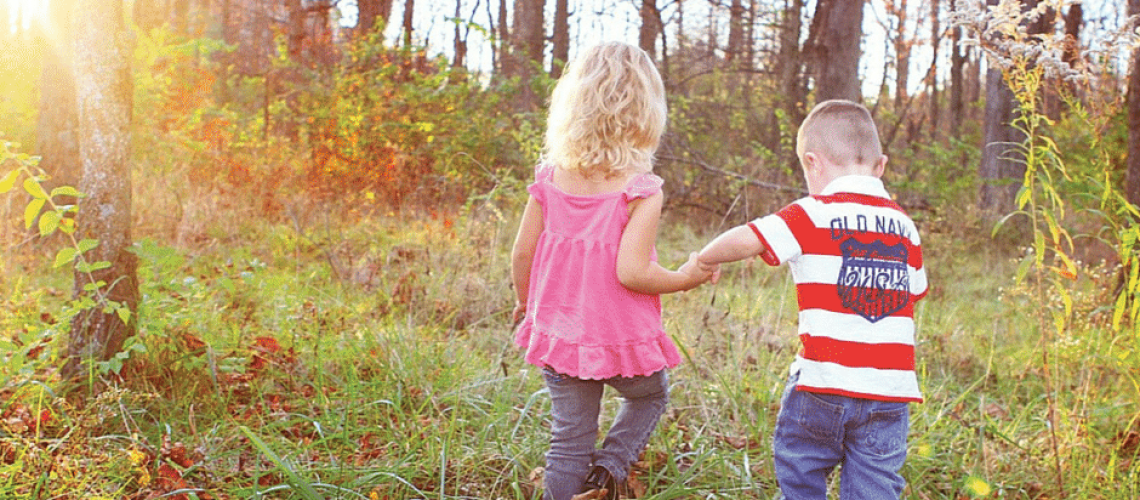Some overall assumptions about sibling friendships
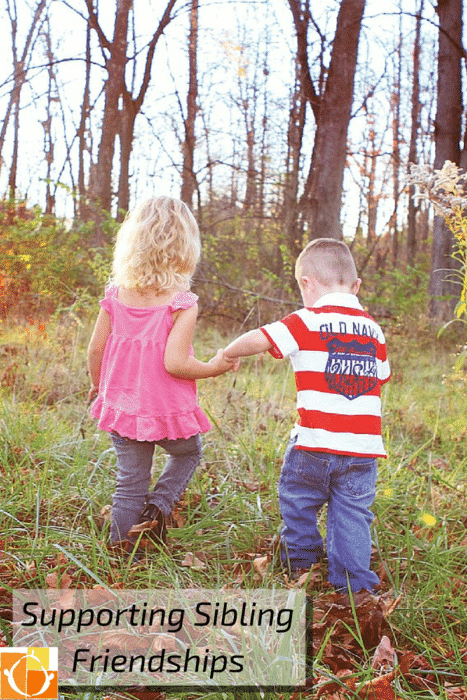 Children are naturally deeply interested in other children, and are drawn to each other. Siblings especially want to love and be loved by each other. Supporting sibling friendships is a natural part of connected family life.
Children are naturally deeply interested in other children, and are drawn to each other. Siblings especially want to love and be loved by each other. Supporting sibling friendships is a natural part of connected family life.
Children have giant-sized needs for warm, relaxed attention from adults. They legitimately need our availability, our direct attention, and our ability to think about their needs.
When children don't get the attention they require, it creates an emotional hurt. This makes sibling friendships a challenge. Every child has been hurt in this way—we don't have enough resource around young children to prevent them from feeling disappointed and rebuffed.
Often, children store these feelings up, because there's no one available to listen to how they feel. Then, when a parent pays obvious attention to a sibling, another adult, or on the telephone, the child with stored hurts notices the attention going to someone other than him. This restimulates his feelings of need—which feel urgent even if he has had lots of attention. The feeling of need is “frozen” into the child because the stored hurt hasn't yet been released.
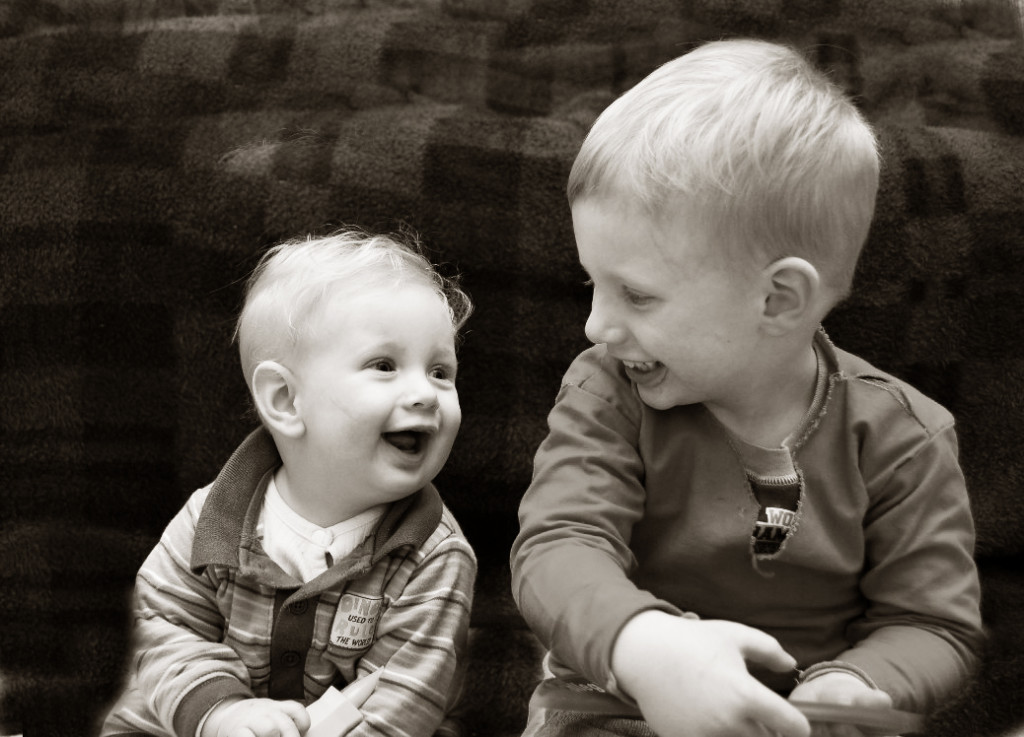
The way children naturally, but highly inconveniently, release their feelings of hurt and regain their sense of satisfaction with their lives is through laughter, crying, tantrums, raging, perspiring, and trembling. When they are upset, they gravitate toward showing feelings, either directly, or by pursuing behavior that you must stop, creating a trigger, or pretext, that opens their feelings up with you close by.
Listening to a child's feelings without judgment, lecture, or blame is a great way to help your child recover from his upset with you or with a sibling. At the end of a good cry, a child has much more room for love and cooperation, because his upset has been heard and dissolved.
Our children's squabbles restimulate lots of old feelings in us, so that it's often hard for us to intervene without causing more hurt. We need listening time to help us work through our frustrations and our fears about their upsets they have. We need a chance to release the feelings that rise in us when the fighting starts.
Some reassurances
Every child has feelings of jealousy and anger toward siblings. These are never the only feelings a child has, although they are often the major feelings we, the parents, notice.
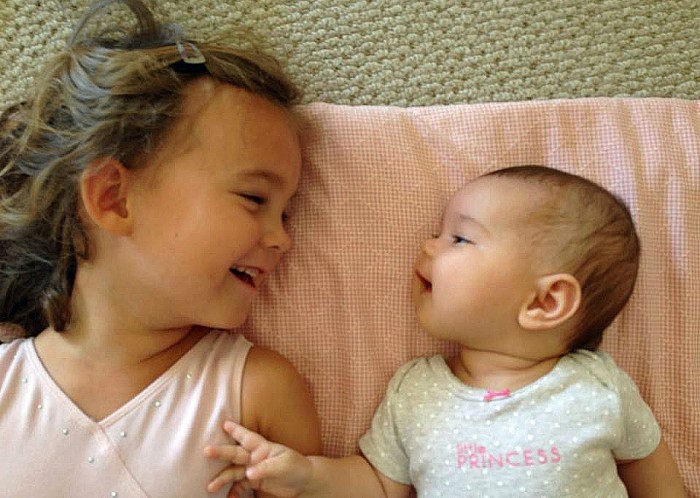 Most children spend lots of time loving and cooperating with their siblings and the needs of their siblings. We parents tend not to notice this. When the children are getting along fine, we often have our attention directed on other tasks—cleaning, cooking, doing laundry, or working all day.
Most children spend lots of time loving and cooperating with their siblings and the needs of their siblings. We parents tend not to notice this. When the children are getting along fine, we often have our attention directed on other tasks—cleaning, cooking, doing laundry, or working all day.
Practices that will help keep you in good contact with each child
Regular Special Time with each child helps keep children's sense of your caring for them intact. When times get hard they are able to work through their feelings more easily because you've “been there” for them recently.
Intervene with your attention, or with five minutes of Special Time at the first hint that one child is going “off track.” Catching a difficulty early gives you a chance to connect with your child before your upsets have brewed, and before someone has been hurt or insulted. It's always easier to connect with a child before any upsets have been acted out at a sibling.
Apologize when you didn't get there in time to prevent a fight. “I'm sorry I didn't notice how upset you were! I didn't get here in time to keep hard things from happening! Tell me what went on.” Your children will be able to like each other more easily after the fight if neither is blamed for the upset. They also will be better able to release their feelings of hurt if you take responsibility for keeping things safe in the family.
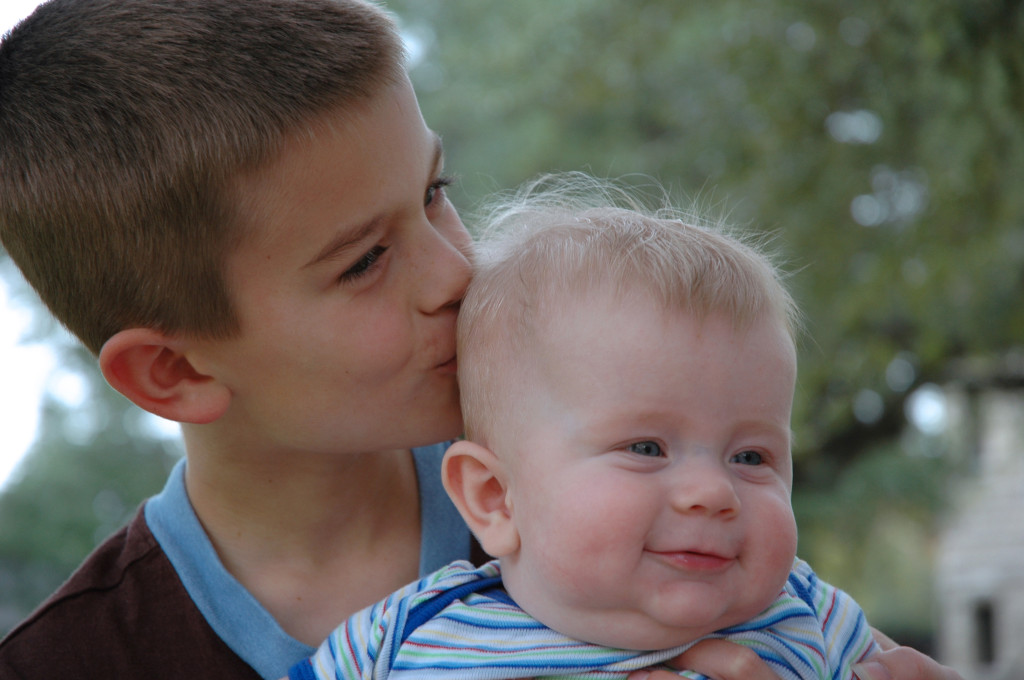 When you've arrived at a fight scene, keep the children from hurting each other. Allow all the crying and raging you can stand. Try to have gentle physical contact with both children or firm contact (if you're keeping them from hurting each other). Take it slow. Ask them in turn what the matter is, and listen back and forth. The release of feelings is the most important thing. Give the situation time. A hurried solution won't stick well.
When you've arrived at a fight scene, keep the children from hurting each other. Allow all the crying and raging you can stand. Try to have gentle physical contact with both children or firm contact (if you're keeping them from hurting each other). Take it slow. Ask them in turn what the matter is, and listen back and forth. The release of feelings is the most important thing. Give the situation time. A hurried solution won't stick well.
You will have many times when one child has hurt another and run away. Vary your response, sometimes spending only a minute with the victim, and going to pay attention to the aggressor, other times, spending time with the victim first. Both children need your help. Usually, the aggressor child feels guilty, and looks like he couldn't care less about his sibling. Don't be fooled. This child has “gone remote” and can't show feelings. He didn't want to get lost in upset, and needs your love to get back to himself again.
 Want more tips on handling sibling rivalry? Get our self-guided video course Taming Sibling Rivalry and learn the secret to strong sibling friendships.
Want more tips on handling sibling rivalry? Get our self-guided video course Taming Sibling Rivalry and learn the secret to strong sibling friendships.
Get our newsletter for monthly help and advice on the big parenting struggles, and how to become a calm, confident parent.
